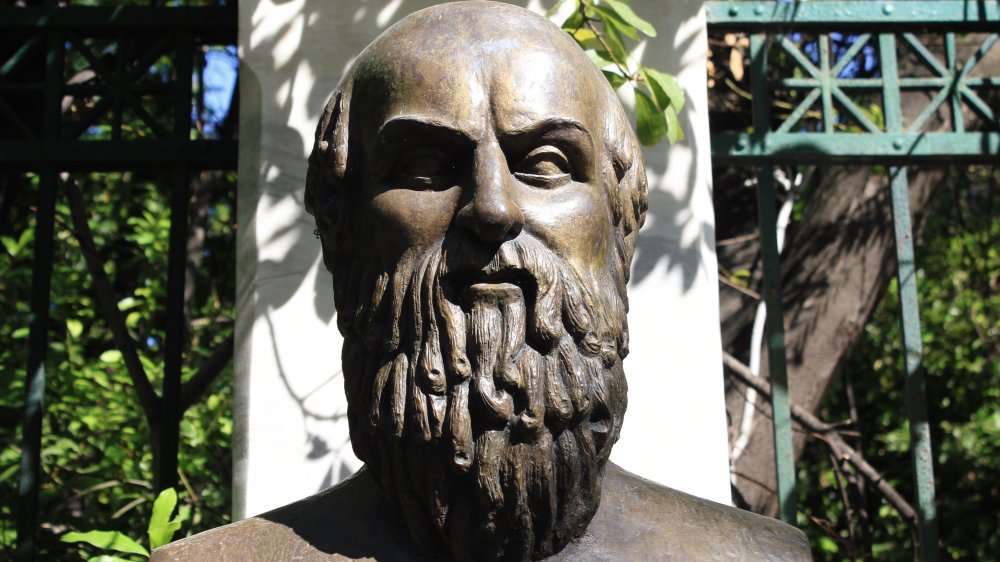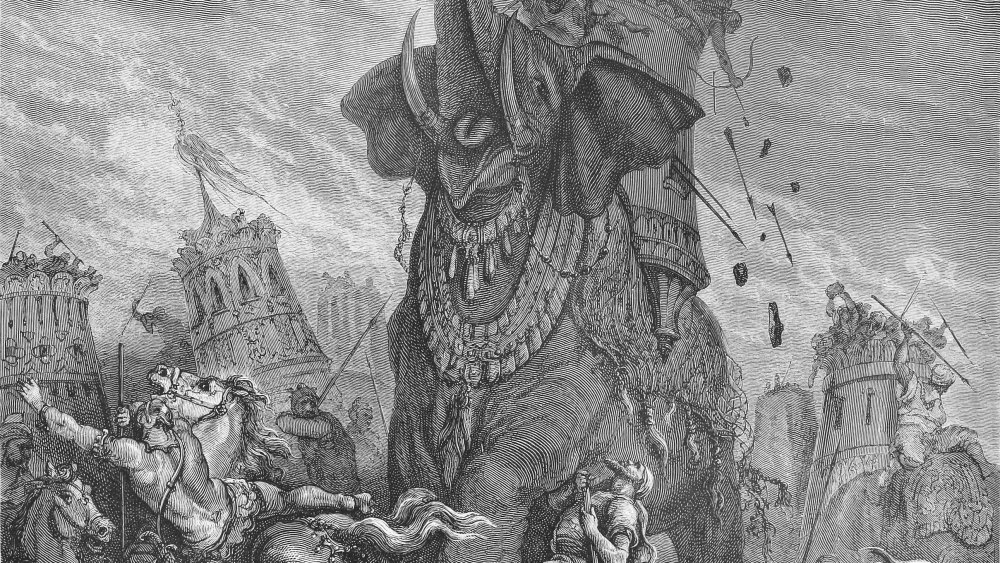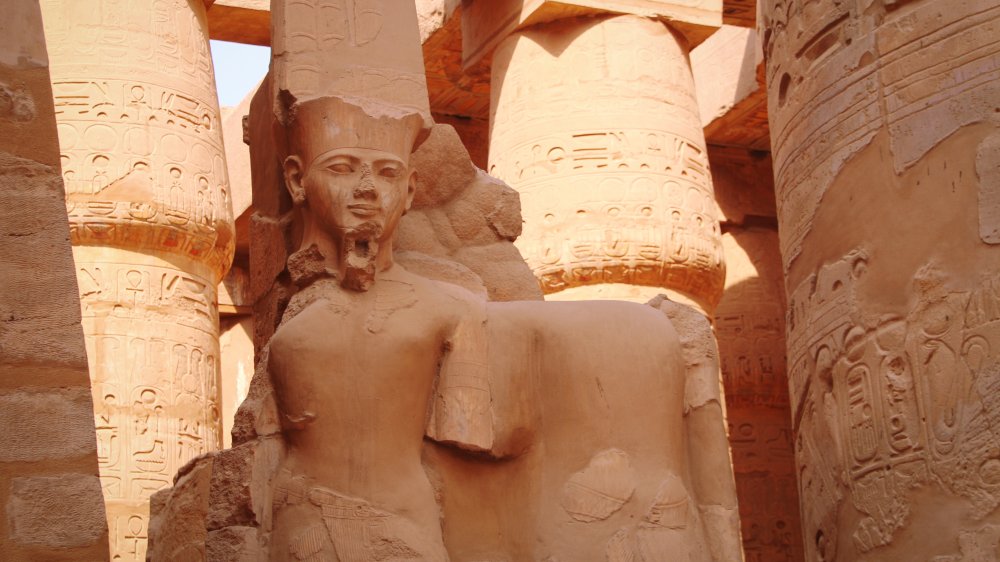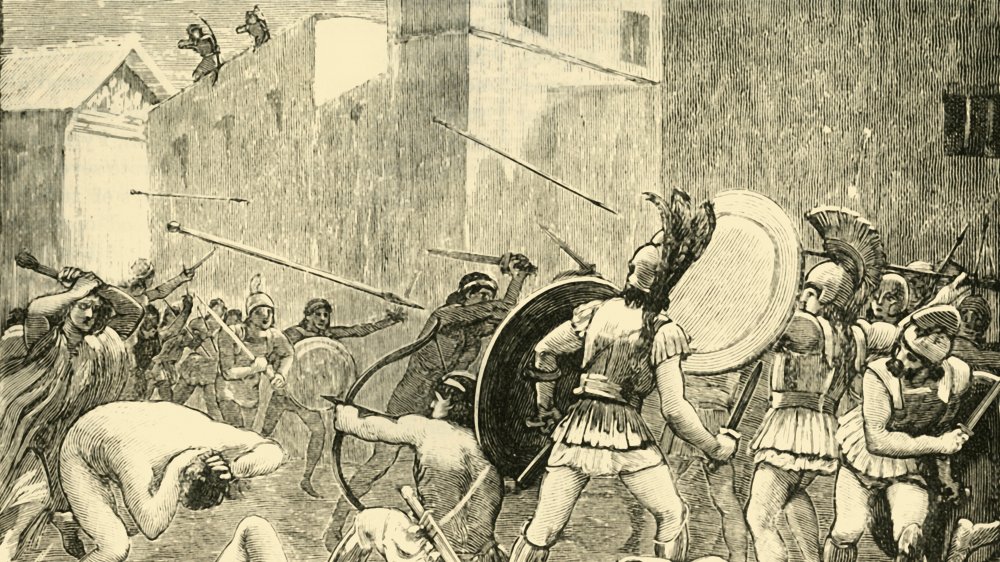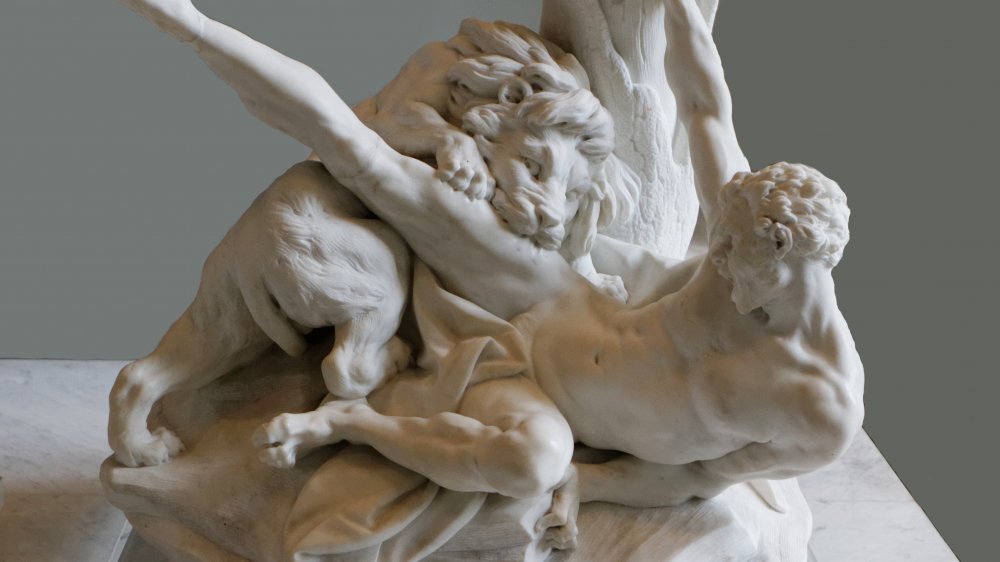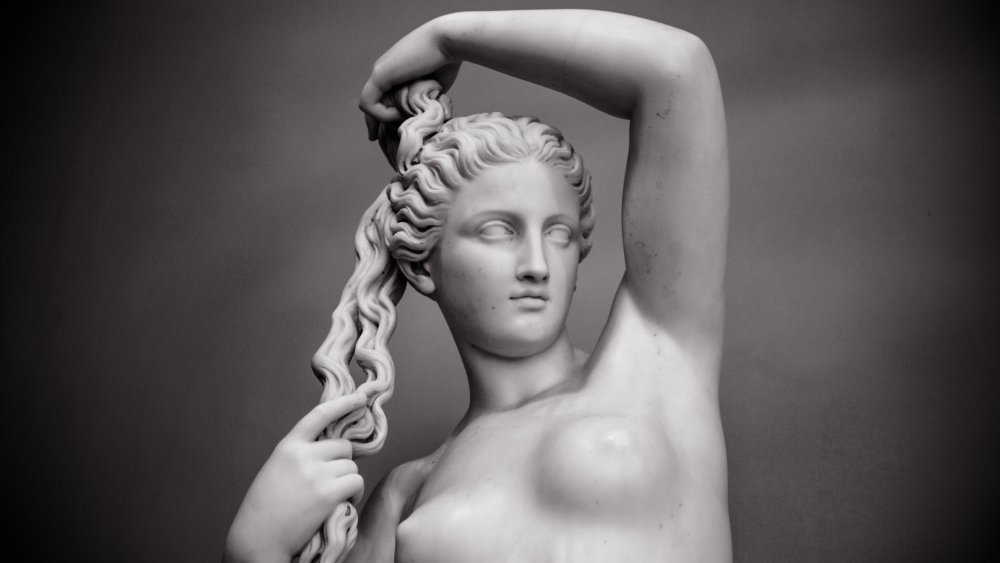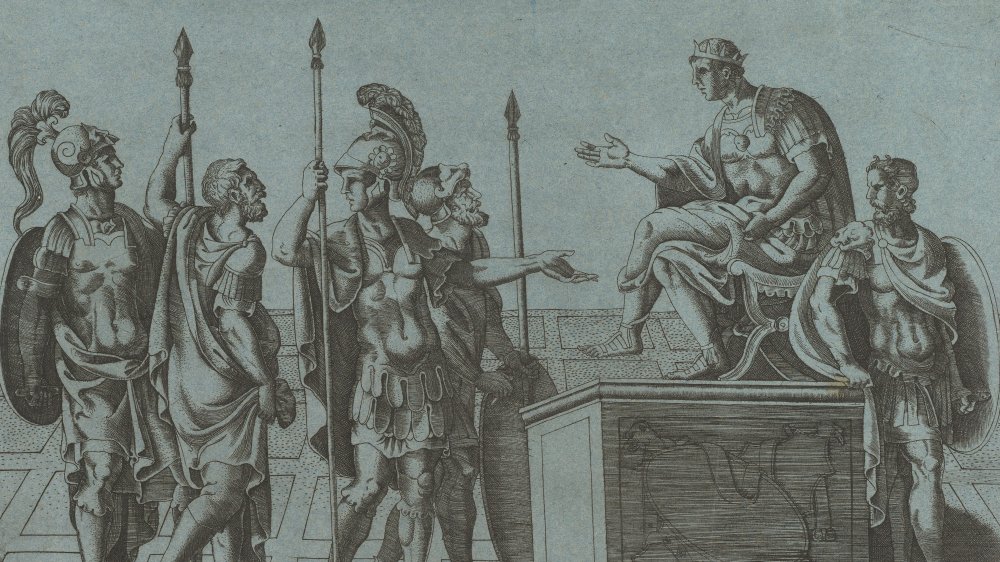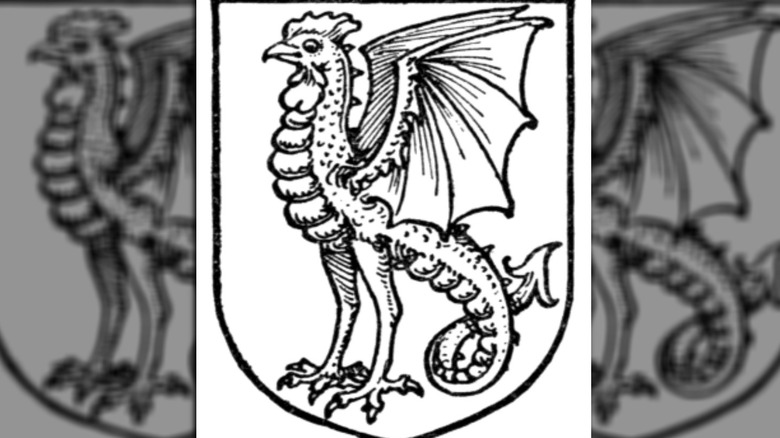
The Weirdest Deaths From Ancient History
There is never an easy time to be alive. The New York Times claims that, in 3,400 years of recorded history, humanity has only been at peace for a grand total of 268 years, or eight percent of the time. And as world diplomacy becomes increasingly complex and national interests rub up against one another, it doesn’t seem like we’ll be adding to that total anytime soon.
But perhaps it’s fair to say that some periods of time are more unpredictable, or rather that societies were so ungovernable that very strange things could occur. This is true especially of the ancient world, when democracy was experimental and science was equal parts observation, interpretation, and superstition, a way of looking at the world that was both searching and naive.
From domestic life to war, from private passions to public performance, the lives of ancient people have suddenly ended in the most unexpected ways. That’s not say that each of the ancients in this article should be receiving a long-overdue Darwin Award, but their deaths constitute such overwhelming weirdness that their stories have been transmitted down the millennia. There’s an element of timelessness to them, and once you read about them, you won’t be able to get them out of your head.
Deadly applause for Draco of Athens
The word “draconian” — used today to describe laws or the use of them that is particularly brutal or severe — has a long history, reaching back to the seventh century BC. Draco the Lawgiver, or Draco of Athens as he was known, was famous in his own time for the harshness with which he reformed ancient Athens’ legal system, according to History Collection, but today, the circumstances of his death are even more famous.
Before Draco, Athenian legal disputes were solved by a system of “private justice,” basically a system of legalized revenge. Of course, the system could be entirely unfair, with rich perpetrators able to protect themselves from retribution while the poor and the weak would continue to be preyed upon and suffer. As well as putting the previously oral legal system into writing — thereby stabilizing it and making sure all citizens were held to the same account — Draco created a system of severe punishments for those who broke the fixed laws of the city. Just as an example, Athenians who were unable to pay their debts would be sold into slavery.
As savage as this seems today, Greek aristocracy very much appreciated Draco’s new legal system. According to a number of historical sources, on a public appearance onstage at Aegina, the accorded citizens showered the legislator with so many hats and articles of clothing — an ancient Greek display of adulation — that Draco apparently suffocated under their weight.
Chrysippus cried and then died from laughter
Depending on your point of view, the death of the ancient Greek Stoic philosopher Chrysippus of Soli could be considered a good way to bow out. According to Healthline, however, his cause of death in 206 BC, aged 73, is apparently very rare.
Originally from Cilicia, Chrysippus had moved to Athens as a young man to join the Stoic school of philosophers, founded by Zeno of “paradox” fame. Like Zeno — whose work the younger philosopher continued and expanded on — Chrysippus was highly interested in logic and, as leader of the Stoic school, created a propositional version of the science different from that laid out by Aristotle, according to Daily Stoic.
Despite his propensity for coolly executed analytics, Chrysippus definitely also had something of a funny bone and a sense of the ridiculous — to an unhealthy degree. During the 143rd Olympiad, the story goes that Chrysippus encountered a donkey tucking into a basket of figs. Chrysippus then called for the donkey to be given some wine to wash down his meal, and the resulting image was hilarious enough to the philosopher that he keeled over and died as a result.
The unusual nature of his death has sometimes overshadowed the work of Chrysippus, who was highly prolific for his time, but his influence as the Second Founder of Stoicism lives on.
Aeschylus' death from above
Is this the most memorable death in history? There’s a good chance that it’s the silliest. It’s certainly the one that will turn up as a question on trivia night at some point.
Aeschylus is considered the father of tragedy, an ancient Greek playwright who wrote more than 90 plays, according to Ancient Origins. His legacy includes the reimagining of the whole genre of tragedy as both written poetry and public performance, with many of the great master’s innovations still central to how we think about playwriting today.
Though his other achievements included being a valiant fighter in a number of historic battles, the name Aeschylus is most known to us today for the totally bizarre way he died. The playwright had left Athens and banished himself to Sicily after his final play, Eumenides, was badly received by the public. There — or so the story goes — Aeschylus was out walking one day when, out of nowhere, a tortoise fell from the sky, hitting him in the head and killing him in an instant.
As unbelievable as this seems, the explanation apparently is that a hungry bird, carrying the tortoise, spied Aeschylus’ bald head and, thinking it was a rock, dropped the tortoise on it in the hope that the tortoise’s shell would crack open.
Empedocles of Akragas wasn't a god
They say pride comes before a fall, and the story of the great pre-Socratic philosopher Empedocles proves this maxim true in a shockingly literal fashion. Like the famous myth of Icarus, the story of Empedocles can be read as a parable reminding us not to be overconfident in our understanding of the world around us.
Empedocles was considered a genius in his own lifetime (circa 490 – 430 BC), theorizing a great number of scientific concepts that would resound throughout the centuries that followed. According to Famous Scientists, it was Empedocles who put forward the idea that the world is created of the four elements: air, fire, water, and earth, which were bound together by the forces of love and strife. As poetic as these ideas seem, they contributed to an early form of atomic theory, in that Empedocles also suggested that no new material was ever created but merely transformed from one state to another.
But Empedocles also believed that, “I, an immortal god, no more a mortal, so honored by all, go about among you.” Though such haughtiness might be forgiven as a rather eccentric conclusion of Empedocles’ lifelong philosophical wonderings, the resulting hubris proved to be fateful. To prove his belief, the great thinker reportedly hurled himself into Mount Etna, an active volcano, dying instantly.
Qin Shi Huang's search for immortality
The quest for immortality has long been an ironically dangerous preoccupation throughout the world, particularly in ancient times. In fact, it claimed the life of China’s very first emperor, Qin Shi Huang, all the way back in 210 BC, according to Live Science. Documents discovered fairly recently have evidence that the emperor died of mercury poisoning, due to the fact that he was taking pills of the harmful element in the belief it would grant him eternal life.
Qin Shi Huang was the first leader to unify the Six Kingdoms, gaining enormous power and influence in the process. His greatness is reflected in his tomb, which contains the famous terracotta army, first discovered in 1974. Since then, some 2,000 individual terracotta soldiers have been excavated, but archaeologists are nowhere near completing their work. Indeed, experts believe, they are decades — or perhaps centuries — away from reaching the burial chamber of the emperor, the ceiling of which is reportedly bedecked with an accurate depiction of the night sky. Other documents claim that there is a whole underground kingdom to be discovered, as well as expansive chambers filled with terracotta concubines, which are still yet to be found.
One of the risks involved is quite fitting to Qin Shi Huang’s story: The tomb is thought to be lined with rivers of, yes, you guessed it — toxic mercury. But archaeologists will just have to cross that bridge when they come to it.
Eleazar Avaran and the elephant
There are many myths and legends that tell of misplaced bravery, but this historical death that occurred during the 167 – 160 BC Maccabean revolt is perhaps so impactful because it is, apparently, true.
The rebellion occurred because of the decision made by the king of the Seleucid Empire, Antiochus IV, to ban the practice of the Jewish religion throughout his territory. Instead, Antiochus wanted his subjects to worship the Greek gods, as Greek culture had had such an impact on the shaping of the empire’s customs and language. According to History Collection, Eleazar was the younger brother of Judas Maccabeus, the leader of the rebellion against the empire. The family waged a guerrilla campaign from the wilderness, which they’d fled to after murdering a Jewish man who made sacrifices to Greek gods.
While fighting to maintain control of Jerusalem in 162 BC, a huge army of 50,000 Seleucidians — and 30 war elephants — came as reinforcements to protect a besieged fortress from the Maccabean attack. To instill bravery in his solders, Eleazar charged one of the gigantic elephants, rushing beneath it and spearing its belly. Unsurprisingly, the huge beast then collapsed, crushing the young fighter but immortalizing his bravery for all time.
Ramses III's traitorous son
As was the custom of ancient Egyptian pharaohs, Ramses III had many wives. According to Smithsonian Magazine, one of his “secondary wives,” Tiye, and her son, Pentaware, hatched an assassination plot to which would help to install Pentaware on the throne. Details of the coup attempt were recorded in contemporary documents which have survived, telling us only some details of the fallout. We have long known that Tiye and Pentaware’s power grab did not ultimately succeed: The throne went to someone else, and the new Ramses IV put the mother and son on trail. Historians have been unsure, however, whether Ramses III survived the assassination attempt and, ultimately, what the fates of Tiye and Pentaware were.
Researchers have made some interesting discoveries, however. Firstly, CT scans performed on the mummy of Ramses III in 2012 revealed multiple grievous injuries, according to Live Science, including a knife wound in the king’s throat suggesting that he was, indeed, murdered.
More grisly still, the body of a younger man found in the tomb has also been analyzed. Tests have demonstrated that the body is related to Ramses III and was probably his son. The body’s contorted face foreshadowed what was revealed by a scan on his lungs: that the man, most likely Pentaware, had seemingly been buried alive.
King Pyrrhus: right place, wrong tile
The death of Pyrrhus is perhaps one of the supreme moments of bathos in the whole of history. He was king of a powerful military tribe in Epirus, a region that spread across modern-day Greece and Albania, between 306 and 272 BC, according to History Hit. As a successor to Alexander the Great, Pyrrhus waged military campaigns constantly, expanding his empire across the region and claiming new titles. At one point, Pyrrhus crowned himself king of Macedonia.
But the valiance of his armies and his limitless military ambition was a double-edged sword. It is from Pyrrhus that we derive the phrase “pyrrhic victory,” in reference to his attritionally damaging campaigns against Rome in the third century BC, during which his elite forces suffered heavy damage in the pursuit of military success, rendering themselves almost undeployable.
The manner of his death strikes a similar tone. Soon after his notable conquest of Macedonia, Pyrrhus besieged Sparta and Argos in an attempt to gain more control of Greek territories. History records that, during a fight in the streets of Argos, Pyrrhus’ glorious military adventures ended when he was struck by a roof tile thrown by an old woman, the mother of a soldier he was about to kill.
The unfortunate end of Milo of Croton
Have you ever been so self-confident that you thought you could do anything? That you could tackle any challenge? Plenty of ancient people were filled with such confidence — and, in fact, the idea of “kudos,” an ancient Greek word referring to the honor gained through one’s actions, particularly in combat, is still with us today to describe fame and our motivations for achieving it.
In the sixth century BC, Milo of Croton (which is now part of modern-day Italy) had it all. A great all-round athlete, Milo competed in six Olympic and seven Pythian games, according to Britannica, and won a total of 32 wrestling tournaments. He also brought himself much kudos for his military exploits, having led the Crotoniates in battle against the Sybarites (a neighboring tribe) and emerged victorious. History Collection states that the champion’s daily diet was said to include 20 pounds of meat, 20 bounds of bread, and 10 liters of wine.
Milo of Croton died when one challenge proved too much for him. Walking through the forest one day, Milo came across a tree that had been partially split by a wedge. Never one to turn down a challenge, the athlete attempted to rend the tree completely in two but instead got both his hands stuck in the gap. He was consequently eaten alive by wolves.
A less famous laugh attack
Chryssipus of Soli is perhaps history’s best-remembered instance of someone apparently dying from laughter, but he’s not the only example — he’s not even the only example in the ancient world.
The Greek artist Zeuxis of Heraclea, who lived during the fifth century BC, also died from a severe case of the giggles. According to History Collection, Zeuxis was considered one of the world’s leading artists in his own lifetime, astonishing his ancient countrymen with exquisitely detailed paintings which gave the illusion of reality and, apparently, could barely be told apart from the real thing. One legend has it that one of his works contained an image of grapes which was so lifelike that confused birds attempted to eat them off the surface of the painting.
Zeuxis’ strange death occurred as a result of his talents. The painter was approached by a female patron who commissioned him to paint a likeness of the Greek goddess Aphrodite, for which the patron herself would sit as the model. The difference between his model’s appearance and the beautiful image that would be required for viewers to recognize his painting as Aphrodite was striking — so much so that Zeuxis collapsed in a fatal fit of laughter, leaving the project unfinished.
Valentinian I's deadly vexation
If laughter can kill, it stands to reason that anger must also be deadly. And in the case of the Roman emperor Valentinian I, a surfeit of emotion proved to be enough to end his life.
According to Medium, Valentinian had some terrible personality traits, which led to his own historians professing their hatred for him on the page. Chief among his quirks was an excessive temper, which fueled much of the emperor’s military decision-making and made him such a formidable enemy on the battlefield.
Valentinian and his armies rampaged throughout much of the Western world in the fourth century AD, eventually finding themselves building fortifications in the lands of the Quadi, tribal groups that lived on the Northern banks of the Danube. The Quadi decided to have a group of envoys sent to an audience with the Roman emperor in an attempt to settle the dispute. The behavior of these envoys in the eyes of Valentinian — they seemingly didn’t acknowledge the supremacy of Rome or the authority of the emperor and his decisions — so enraged him that he suffered a brain hemorrhage, dying instantly in front of his visitors.

The Truth About The Alien Invasion In The Hudson Valley

The Eerie Quotes And Carvings You Can Find In The Paris Catacombs

What Christmas Was Like In The Victorian Era

The Truth About The Exorcism Of Anna Ecklund

The Real Reason Eddie Van Halen Once Put A Gun To Fred Durst's Head

Pig Poops Pedometer, Ignites Fire

The Truth About The Pentagon's New Atomic Moon Rocket

Canadian Wild Pigs Building 'Pigloos' To Survive Winter

The Dog Breed That Can't Bark

Bizarre Things You Can Only Find In Japan


